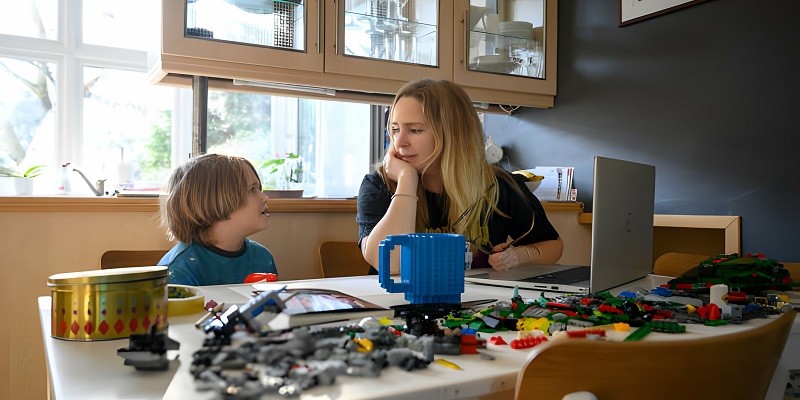Last Updated on January 15, 2025
Both “Mama” and “Momma” are acceptable terms for one’s mother, with no correct or incorrect way to say it. The choice between the two largely depends on individual preference.
Some may opt for “Momma” for a more Southern tone, while others may prefer the simpler “Mama. ” The distinction also reflects a regional or cultural influence on the term used to address one’s mother. The significance of these terms goes beyond semantics, often serving as a reflection of personal and cultural upbringing.
Ultimately, whether one uses “Mama” or “Momma” is a matter of personal choice and familiarity.
Defining Mama And Momma
When it comes to terms of endearment for mothers, the words “mama” and “momma” are often used interchangeably. Both terms hold a special place in the hearts of many, but the question remains, which one is correct? Let’s delve into the meanings of “mama” and “momma” to shed some light on this delightful linguistic debate.
Meaning Of Mama
The term “mama” is a universal and endearing term for mother. It is often used by children when addressing their mothers, and it carries a sense of warmth, comfort, and affection. The word “mama” is prevalent in various cultures and languages, making it a widely recognized term for motherhood around the world.
Meaning Of Momma
On the other hand, “momma” is another affectionate term for mother, often associated with the Southern dialect in the United States. Similar to “mama,” “momma” exudes a sense of love and closeness. It is a term that evokes feelings of warmth and nostalgia, particularly in the context of the American South.
Usage Of Mama And Momma
Mama and Momma are common terms used to refer to one’s mother. They are often used interchangeably, but there can be regional and cultural differences in their usage.
Interchangeable Usage
Momma and Mama are almost interchangeable in pronunciation. The choice between them typically revolves around personal preference or regional dialect rather than a strict rule.
Regional And Cultural Differences
In some regions or cultural contexts, Momma may be more prevalent, while in others, Mama is preferred. These variations can stem from historical linguistic influences or familial traditions.
Emotional Connotation
Mama and momma, two endearing terms used to refer to one’s mother, go beyond mere linguistic labels. These words carry a deep emotional connotation, evoking feelings of love, comfort, and familiarity.
Diminutive And Informal Nouns
Diminutive nouns like “Mama” or “Momma” often signal a sense of closeness and affection. The use of these terms can create a warm and intimate bond between a child and their mother, conveying a sense of security and unconditional love.
Emphasizing The Emotional Dimension
The emotional dimension associated with the choice between “Mama” and “Momma” transcends mere phonetics. While “Momma” may sound more informal and cozy, “Mama” can evoke a sense of tradition and heritage, depending on one’s cultural background.
In essence, both “Mama” and “Momma” hold a special place in the hearts of many, representing the profound emotional connection between a child and their mother.
Personal Preference
In the debate over “Mama” versus “Momma,” the winner is ultimately personal preference. Both terms are endearing and commonly used to refer to one’s mother, and either can be considered correct. Understanding individual choices is key to appreciating the reasoning behind which term is preferred. There’s no one-size-fits-all answer; the decision often reflects a person’s cultural background, upbringing, or regional influences. Let’s delve into the reasons behind personal choices when it comes to addressing the matriarch in one’s life.
No Correct Or Incorrect Way
When it comes to addressing one’s mother, there is no definitive right or wrong. The preference for “Mama” or “Momma” is entirely subjective and varies from person to person. It’s a matter of personal taste and cultural influences, rather than a matter of correctness. The beauty lies in the uniqueness of individual choices.
Individual Choices
Individual choices regarding whether to use “Mama” or “Momma” are deeply rooted in personal experiences and cultural background. Some individuals may have grown up hearing one term more frequently, leading to a stronger emotional connection with that particular word. Others may adopt a term out of fondness for the way it sounds or the memories it evokes. The choice is a personal one, reflecting the nuances of an individual’s relationship with their mother.
Frequently Asked Questions For Which Is Correct “mama” Or “momma”?
Is Momma A Southern Thing?
Both “mama” and “momma” are acceptable terms for referring to one’s mother. There is no correct or incorrect way to say it.
Who Is Called Momma?
Both “mama” and “momma” are acceptable terms for referring to one’s mother. There is no correct or incorrect way to say it.
Why Do People Say Mama?
People say “mama” due to a linguistic coincidence in many languages, where similar sounds mean “mother. ” Both terms are acceptable.
Is Mama Formal Or Informal?
The word “Mama” is informal while “Mother” is formal in English vocabulary. Both terms are acceptable for referring to one’s mother.
What Is The Difference Between “mama” And “momma”?
“Mama” and “momma” are both terms used to refer to one’s mother. The only difference lies in the spelling and pronunciation.
Conclusion
The debate over “Mama” or “Momma” may vary by regional, emotional, and cultural preferences. Both terms hold value and are acceptable. So, the choice of “Mama” or “Momma” ultimately comes down to personal inclination and the emotional connotation one wishes to convey.
It’s all about embracing the endearing connection.



